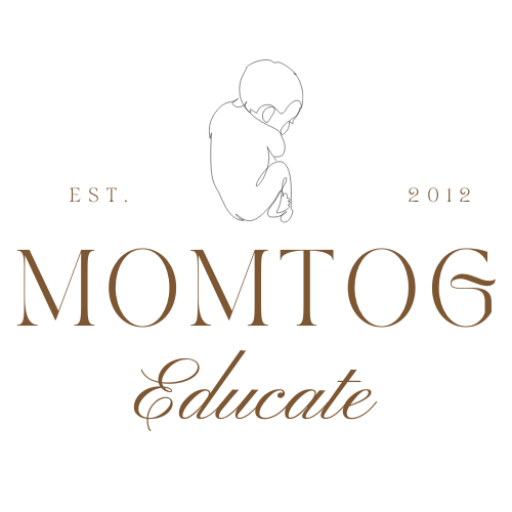We have all heard of the stories of someone who picked up a camera one day and became a self-taught overnight sensation. Really?! Can you build a thriving career on Google and YouTube?
It’s an inspiring idea, but also a misleading one.
While you can absolutely learn photography on your own, no photographer becomes great entirely self-taught. Every skilled artist — whether they realize it or not — has learned from someone else’s knowledge, feedback, and experience.
So let’s look at why the answer to “Can I be a self-taught photographer?” is really no — not if you want to reach your full potential.

Learning Alone Has a Ceiling
Photography looks simple from the outside — just point, shoot, and edit. But once you start digging into the craft, you realize how deep it goes: light behavior, exposure control, essential posses, and so much more. You can experiment your way through these topics, but that approach has limits. Without guidance, you’ll often repeat the same mistakes or miss techniques that could elevate your work dramatically.
That’s where mentorship makes a difference. A mentor can shorten years of trial-and-error into key lessons. They help you understand not just what works, but why it works — the kind of insight you rarely get from self-study. Mentors, peers, and structured lessons don’t just save time — they open creative doors you wouldn’t even know existed.
Even the most “self-taught” photographers are really community-taught. They’ve learned from blogs, mentors, feedback groups, or colleagues who helped refine their eye.
You Don’t Know What You Don’t Know
When you are self taught, it’s easy to get trapped in your own blind spots. You think your images look good, but an experienced eye could spot ten ways to make them great. These are the details that separate “decent” from “professional,” and they’re nearly impossible to see on your own. Left alone, many self-taught photographers plateau without realizing it. They get comfortable at a certain level and stop improving. A good teacher or mentor will push you beyond comfort zones and challenge habits that hold you back. And once you fix them, you ave found your success launchpad.

Tutorials Are Not Mentorship
Online tutorials and free courses are amazing resources. You can find endless videos about aperture, lighting, editing, or gear setups. But here’s the truth: tutorials teach technique — not vision, they can only take you so far. The best photographers use tutorials as supplements, not substitutes. Watching someone explain aperture settings or retouching workflows isn’t the same as someone looking at your photo and saying, “Here’s how to make it stronger.” Learning photography isn’t about collecting information — it’s about learning to see differently. That kind of transformation happens through personalized feedback, not passive viewing.
Photography Is a Language — and You Need Someone to Teach You the Grammar
Think of photography as a language made of light, color, and timing. You can pick up a few words by yourself — maybe even form some beautiful sentences — but fluency takes structure.
Even the most creative photographers rely on technical understanding. A mentor gives you that structure. They help you understand why something works, not just how to do it.
Without that foundation, self-taught photographers often rely on imitation — copying trends or styles they like — without grasping the underlying principles. Their work may look good, but it lacks consistency, cohesion, or emotional depth.
Guided learning turns imitation into understanding.

Feedback Is the Missing Ingredient
Feedback isn’t always comfortable, but it’s essential. One of the biggest downfalls of self-teaching is the lack of honest critique. Friends might say your photo looks great, but constructive critique — especially from someone experienced — is what pushes you forward.
Feedback transforms confusion into clarity. It shows you how viewers interpret your work and how to guide that response intentionally. That’s why photographers who engage with mentors or communities grow exponentially faster. They don’t just tell you what’s wrong; they show you how to make it right. And while learning what to do — they’re also learning why it matters.
Without feedback, you’re just guessing. With it, you’re evolving.
Creativity Thrives on Connection
The image of the lone artist perfecting their craft in isolation while wondering the world is romantic — but unrealistic.
Photography has always been a collective art. Every great photographer has been influenced by those before them: their teachers, collaborators, or even rivals. When you connect with mentors or peers, you expose yourself to fresh perspectives. You see how others solve creative challenges.
Growth in photography isn’t a solo climb — it’s a shared ascent.

Structured Learning Speeds Up Success
Self-teaching can feel empowering, but it’s often inefficient. You spend months figuring out problems that a mentor could solve in a single conversation.
Structured learning — through workshops, mentorships, or courses — gives you a roadmap. It saves you from dead ends and builds confidence in your skills.
That’s why even photographers who start self-taught often reach a turning point where they seek professional guidance. It’s not giving up independence; it’s choosing direction.
Think of mentorship as a shortcut to mastery. You still do the work, but you do it smarter.
The Best Photographers Never Stop Learning
Even professionals with decades of experience continue to study, experiment, and learn from others. Photography evolves constantly: new techniques, tools, and technologies appear every year. That’s because photography is constantly evolving — and no one ever truly “finishes” learning it.
If the experts still seek education and mentorship, why should beginners expect to master it alone? Being “self-taught” might sound noble, but true artistry comes from humility. The photographers who grow the fastest are the ones who stay teachable.
Independence ≠ Isolation
There’s a difference between being an independent learner and being isolated. Being an independent learner doesn’t mean rejecting help — it means taking ownership of your growth. You can still drive your own learning, explore your own style, and define your own goals — all while leaning on mentorship for guidance.
The best photographers blend curiosity with community — they explore boldly, but never stop listening.

Final Thoughts
So, can you be a self-taught photographer?
Not entirely.
You can learn the basics on your own, but if you want to go from taking “good” pictures to creating great ones — a camera and curiosity will get you started — but a mentor will get you somewhere.
Find guidance. Seek feedback. Learn from those who’ve walked the path before you.
Because photography isn’t about proving you can do it by yourself.
Ready to Take the Next Step?
If you’re tired of guessing what’s missing in your photos — or you’ve hit that creative plateau and want to finally break through — it’s time to stop going it alone.
Join our SUCCESS LAUNCHPAD! You’ll get personalized guidance, honest feedback, and a clear plan to help you grow faster than you ever could on your own.

